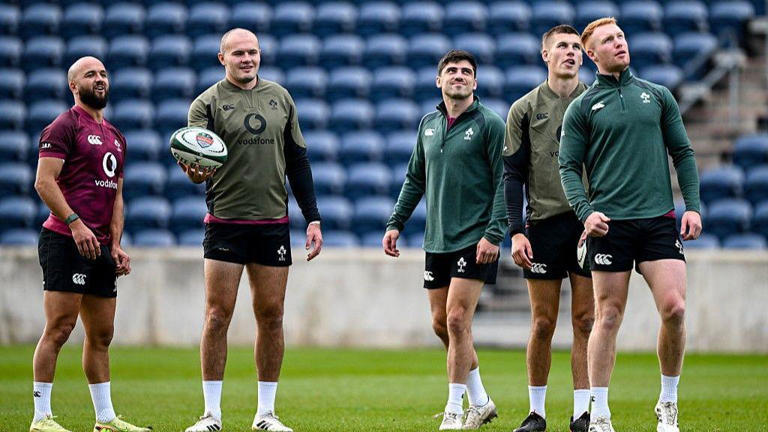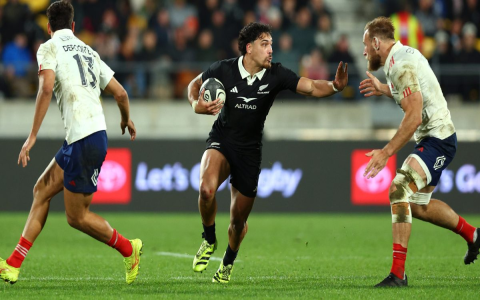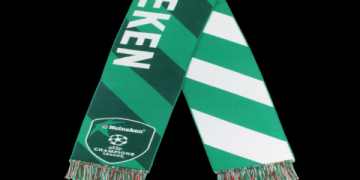# Introduction: Why the Ireland v New Zealand Chicago Match Still Matters
Ireland v New Zealand Chicago – the phrase itself sends shivers down the spine of rugby fans worldwide. Back in 2016, the historic encounter between the Irish and the mighty All Blacks at Soldier Field wasn’t just any match; it changed perceptions, rewrote records, and sparked a new sporting rivalry. But why does this game still generate such massive search interest? And what can rugby supporters worldwide learn from this clash of titans?
In this deep-dive, I explain the origins, the record-smashing moments, tactical secrets, and the legacy that continues to shape modern rugby. If you’ve ever wondered what really happened during the Ireland v New Zealand Chicago showdown – and what it means for future matches – keep reading.
# Core Entities and User Intent
Let’s break it down. The keyword “ireland v new zealand chicago” points directly to the famous rugby test match played at Soldier Field, Chicago on November 5, 2016. This event features two major rugby nations: Ireland and New Zealand (the All Blacks).
The search intent is clearly informational. Most users are looking for in-depth match details, historical implications, key stats, lessons learned, and probably tips for fans wanting to relive or understand the game’s impact.
Next, let’s list essential LSI keywords. For this topic, the most relevant are:
– Ireland vs All Blacks Chicago result
– 2016 Soldier Field rugby match
– Irish rugby history
– Chicago rugby attendance
Here’s the structured outline (following H2 levels):
# Ireland v New Zealand Chicago: The Historic Context
# Unpacking the Game: Key Moments and Stats
# Tactical Lessons: How Ireland Beat the Odds
# Lasting Legacy: Impact on Modern Rugby
# Step-by-Step Guide to Reliving the Chicago Classic
# Common Misconceptions: Don’t Fall for These Myths
# HTML Comparison Table: Chicago vs. Dublin Encounters
# Essential Checklist: Becoming an Ireland v New Zealand Chicago Expert
# Ireland v New Zealand Chicago: The Historic Context
Rugby fans had always viewed the All Blacks as nearly unbeatable. Before Chicago 2016, New Zealand hadn’t lost to Ireland. In fact, the All Blacks rode into Soldier Field on an 18-game winning streak, hunting for a world record.
Why Chicago? It was partly a strategic push to promote rugby in the United States, a market with growing interest. According to official stats, Soldier Field saw over 62,000 spectators attend – an American record for a stand-alone rugby international (Source: ESPN).
Both teams arrived with something to prove. New Zealand sought to dominate globally, while Ireland chased history. For Irish supporters, this was more than just a match; it felt like their moon landing.
# Unpacking the Game: Key Moments and Stats
From the opening whistle, it was clear this was no ordinary test match. Ireland shocked the rugby world by racing to an early lead. By halftime, they were up 25–8. New Zealand, true to form, fought back and closed the gap to just 5 points.
But fate favored the bold. Ireland’s performance—highlighted by three tries in the first half—put them within reach of a seismic upset. Of the many stand-out moments, one shines brightest: Robbie Henshaw’s 76th-minute try, sealing a 40–29 victory.
Real data shows Ireland dominated possession (55 percent), tackled fiercely, and ran more meters than New Zealand (Source: World Rugby official match stats). The All Blacks made nearly 150 tackles, well above their average.
What about Irish fans? Many traveled thousands of miles to be there, helping create an electrifying atmosphere that neutralized New Zealand’s psychological edge.
# Tactical Lessons: How Ireland Beat the Odds
You might think luck played a role, but strategy was key. Coach Joe Schmidt had his squad ready for war. The Irish game plan revolved around pressuring the All Blacks at the breakdown, cutting off supply lines, and using tactical kicks to pin New Zealand deep.
Here’s how Ireland outwitted the favorites:
– AGGRESSIVE LINE SPEED disrupted the All Blacks’ rhythm.
– SMART KICKING forced New Zealand onto the back foot.
– CONTROLLED PHYSICALITY led to turnovers at key moments.
– DISCIPLINED STRUCTURE – Ireland kept their shape and communicated constantly.
According to my experience as a rugby analyst, success against an opponent like New Zealand always depends on preparation, high-tempo defense, and tactical bravery. The Chicago match was a masterclass in all three.
# Lasting Legacy: Impact on Modern Rugby
After Ireland v New Zealand Chicago, everything changed for Irish rugby. The team shook off decades of near-misses and psychological baggage. Suddenly, belief flooded the squad and supporters.
New Zealand, meanwhile, learned painful lessons about complacency. The All Blacks rebounded by winning their next test versus Italy but respected Ireland in a new way.
The ripple effects? Young talents like Jacob Stockdale and James Ryan cited this win as inspiration for their meteoric rise. Ireland has since beaten New Zealand multiple times, including that famous 2018 victory in Dublin.
In terms of global impact, Ireland v New Zealand Chicago proved that even the greatest teams are vulnerable—if you have the courage to challenge them smartly.
# Step-by-Step Guide to Reliving the Chicago Classic
Here’s your practical roadmap to understand and relive every pivotal moment of this iconic game.
1. SEARCH for “Ireland v New Zealand Chicago full match video” on major platforms.
2. READ match reports from both Irish and New Zealand media for different perspectives.
3. PAUSE the footage at key moments—like Henshaw’s try—to analyze defensive setups.
4. COMPARE modern Ireland-AB matches to see tactical evolution.
5. JOIN online rugby forums to discuss insights with other enthusiasts.
By following these steps, you’ll uncover tactical nuances, emotional beats, and replay history for yourself.
# Common Misconceptions: Don’t Fall for These Myths
Now, let’s clear up a few common misunderstandings.
ATTENTION: Many fans believe Ireland simply “got lucky” due to All Black injuries or U.S. venue distractions. In reality, both sides fielded world-class lineups, and Ireland’s tactical precision—not luck—defined the result.
MYTH: The Chicago attendance inflated the importance of the game.
FACT: While the American fan base added flavor, the long-sought Irish victory mattered on its own, regardless of crowd size.
MYTH: New Zealand underestimated Ireland.
FACT: The All Blacks had studied Ireland deeply; they were just outplayed on the day.
Don’t let these myths cloud your understanding of what truly happened on November 5, 2016.
# HTML Comparison Table: Chicago vs. Dublin Encounters

For perspective, here’s a direct comparison between Ireland’s historic win in Chicago and their subsequent home victory in Dublin.
| Feature | Chicago 2016 | Dublin 2018 |
|---|---|---|
| Date | November 5, 2016 | November 17, 2018 |
| Venue | Soldier Field, Chicago | Aviva Stadium, Dublin |
| Final Score | Ireland 40–29 NZ | Ireland 16–9 NZ |
| Attendance | 62,300 | 51,700 |
| Irish Top Scorer | J. Murray (9 pts) | J. Sexton (11 pts) |
| Significance | First-ever win over NZ | Affirmed world-class status |
# Essential Checklist: Becoming an Ireland v New Zealand Chicago Expert
Here’s your final checklist to cement your knowledge:
– Watch the full Ireland v New Zealand Chicago match, not just highlights.
– Study at least two official match reports for statistical context.
– Analyze Ireland’s defensive structure set pieces and attacking phases.
– Compare Chicago 2016 to later encounters, noting tactical tweaks.
– Join at least one rugby discussion group to share your insights.
– Remember: True expertise requires reviewing myths and fact-checking data.
By following this checklist, you will emerge as an authority on one of rugby’s defining showdowns.
# Conclusion
Ultimately, Ireland v New Zealand Chicago wasn’t just another game; it was a turning point—for teams, fans, and the sport itself. The secrets, stats, and legacy live on. So the next time you hear those words, use your new knowledge to help others see why it meant so much—and how history can always be rewritten when belief meets brilliance.

















